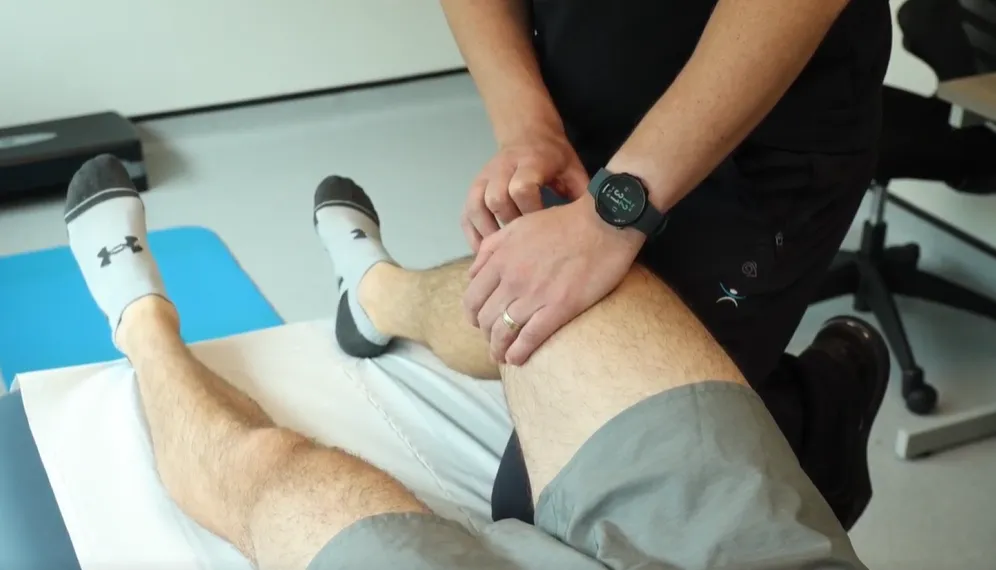A day in the life of a MSK Clinician

A day in the life of a MSK Clinician
Overall, my job role involves providing MSK (musculoskeletal) services within an occupational health setting, along with some specialist occupational health appointments. I often work on-site with clients, delivering MSK clinics that include initial assessments and follow-up reviews or treatment sessions. These allow me to maintain an MSK caseload, supporting employees to remain at work or return to work. After each session, I write a report to provide feedback to the employee’s manager, including any relevant work-related advice.
I also conduct other types of appointments, such as physical capability assessments—often involving workplace visits to observe employees performing aspects of their roles—as well as DSE (Display Screen Equipment) assessments, workstation assessments, and driver assessments.
Additionally, I have remote clinic days where I conduct telephone or video appointments. These can include MSK assessments and treatments, MSK screenings, DSEs/WPAs, and management referrals.
The role offers flexibility in working hours, provided it aligns with client needs. I typically start between 8:00 a.m. and 8:30 a.m., which suits my personal preference.
On-Site Day
I usually arrive about 15 minutes before the clinic starts to sign in, set up the room, greet the people I collaborate with—such as people advisors, managers, and other occupational health staff—and, if time allows, grab a coffee! I review my diary for the day, and can read referral information so I have an understanding of what cases I have for the day. When an employee arrives, I carry out the assessment based on their appointment type and write the report afterward, uploading it to our system OHIO. This enables the referring manager to access the report. I manage my own diary and rebook employees for follow-ups if needed.
I take a 30-minute lunch break around 12:30 p.m., using the time to eat, unwind, and step away from work. I may check emails if necessary, and sometimes engage in informal chats with colleagues.
At the end of the day, I ensure all notes and reports are completed and then close the clinic on the system.
Remote Clinic
These days involve appointments with employees from various clients, and have similar appointment types to the on-site days, just without any objective assessment (unless being completed by video).
I have 30 minutes of admin time to complete notes and reports and to check emails and Teams messages.
Remote days also give me the opportunity to complete CPD (Continuing Professional Development). This time is blocked out in my diary and may include group Teams meetings, pre-recorded sessions, reading articles, or conducting self-directed CPD that is relevant. I log all CPD activities to maintain my professional portfolio.
Communication
Throughout the week, I interact with many colleagues. I usually speak with my line manager via Teams at least once a week to provide updates. We’re grouped into teams based on geographical location, and if I have clinical or business-related questions, I often reach out to my team first. However, I’ve found that anyone in the business is generally happy to help. For admin or HR-related queries, the company typically responds quickly to emails or Teams messages.
Highlights
One of the highlights of my role is the opportunity to develop my MSK assessment and treatment skills through a consistent caseload. I’ve also gained more specific skills, such as conducting workstation assessments and using manual handling tools to analyse job roles, which are things not taught within a university degree for MSK typically. This has helped me grow as a clinician due to having a wider skillset. I always find there is some form of continuous learning, and I work alongside experienced colleagues who support my development.
Challenges
A challenge I’ve faced is that after being trained in certain assessments, I didn’t always get to use them immediately (due to a varied caseload), which made me feel less confident. To address this, PAM offers regular refresher training, and there’s the option to shadow a colleague before performing the assessment independently, and you are not rushed to complete the assessments until you feel ready and more confident. There’s always someone available to support you through the process so you can complete all appointment types to a good ability.
Career Development
I studied BSc Sport Rehabilitation, which gave me essential skills in MSK assessment, rehabilitation, and ethical practice. I then joined as a graduate MSK clinician in occupational health. In this role, I learned the key aspects of MSK occupational health and gradually built my caseload with support from experienced clinicians. After about 18 months, I progressed to an MSK clinician role, managing my caseload more independently. A great aspect of this job is the ongoing support from other clinicians for complex cases, so I feel I am still learning and building knowledge within my career.
For anyone considering a role in MSK occupational health, a strong foundation in MSK is essential. However, being open to learning specific occupational health assessments will expand your knowledge and skillset as a clinician.


